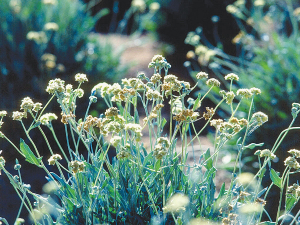Green no more?
OPINION: Your old mate has long dismissed the Greens as wooden bicycle enthusiasts with their heads in the clouds, but it looks like the ‘new Greens’ may actually be hard-nosed pragmatists when it comes to following voters.
 Guayule is a desert-adapted shrub that can be used for several products, but most notably as a natural rubber for tyres.
Guayule is a desert-adapted shrub that can be used for several products, but most notably as a natural rubber for tyres.
While the subject of water never seems very far from the agricultural news, it always seems to be about the extremes of too little or too much.
In the case of the former, many scientists around the world are looking to find alternative crops to deal with climate change.
In the US, the Colorado River, a major source of water for crops, had been running at lower levels. This is thanks to a 27-year drought, resulting in the seven US states and Mexico – that rely on the river – promising more water than is available, causing chronic overuse.
When an official shortage was declared last year, it triggered major water cuts in the central Arizona county that caused some farmers to look for more water-efficient crops.
Will Thelander, a third-generation farmer, is testing a crop called guayule (pronounced “wy-oo-lee”). This a desert-adapted shrub that can be used for several products, but most notably as a natural rubber for tyres. Most importantly, it requires around half the water of cotton, alfalfa and corn crops typically grown in the area.
A native of the Chihuahuan Desert, as well as requiring less water, once established, the plant doesn’t require any insecticides or inter-row cultivation. This means it limits chemical use and helps retain soil carbon.
As a measure of water requirements, US farmers typically measure water using acre-feet, which is the amount of water required to cover one acre of land, one foot deep. One acre-foot is about 325,851 gallons.
Guayule requires about 2.5 acre-feet of water over 12 months. This is said to be about two times less water than crops like corn, which requires 4.5 acre-feet over four months and alfalfa for animal feed, which needs 6 acre-feet over about eight months.
Guayule is also said to provide other environmental co-benefits, with excellent pest resistance. So much so, that plantings next to less resistant species such as cotton are being encouraged to “soak up” infestations. The plant also acts as a nursery, attracting and potentially supplying important pollinators alongside predatory insects and parasitoids, to the rest of the agriculture system.
Guayule is a perennial crop, meaning it’s harvested once every two years, and doesn’t require any replanting once established. This means a reduction in the number of tractors needed and the amount of carbon pulled out of the soil.
Guayule has caught the attention of industries that are also looking for more sustainable materials. Research is being supported by tyre manufacturers, most notably Bridgestone, who are looking to diversify its natural rubber supply chain. Most of the company’s natural rubber comes from Hevea rubber trees in southeast Asia, which are seen to be vulnerable because of changing farmer trends and world conflicts.
The company notes that the new crop will need more processing than Hevea-sourced rubber.
However, it believes that developing a manufacturing process out of guayule would help mitigate the reliance on a less reliable source.
Currently growing 300 acres of guayule, Bridgestone hopes to ramp up production to 2,000 acres by 2024, and eventually have 25,000 acres in production by 2027.
Northland Field Days patron Ross Newlove remembers the inaugural field days he attended 40 years ago.
Southland farmer Murray Donald has been appointed as chair of Safer Farms, the industry-led organisation focused on reducing harm, injuries and fatalities in the agricultural sector.
National Lamb Day returns this Sunday, 15 February, with Beef + Lamb New Zealand Inc calling on Kiwis to fire up their barbecues and celebrate the people and the product that put New Zealand on the world map.
When it comes to arranging the sound system at Northland Field Days, no one does it better than Colin Finlayson.
A 40th Anniversary event to remember.
The Mountain Warrior Shane Cameron is coming back to his roots as key note speaker at the East Coast Farming Expo Property Brokers Evening Muster in February.

OPINION: Here w go: the election date is set for November 7 and the politicians are out of the gate…
OPINION: ECan data was released a few days ago showing Canterbury farmers have made “giant strides on environmental performance”.